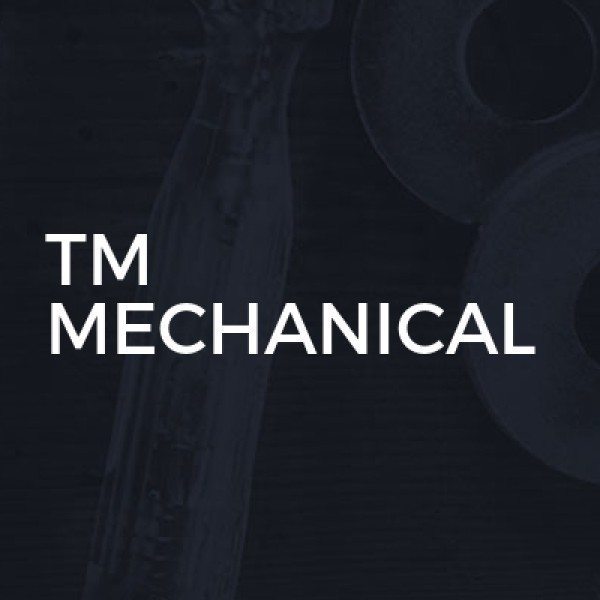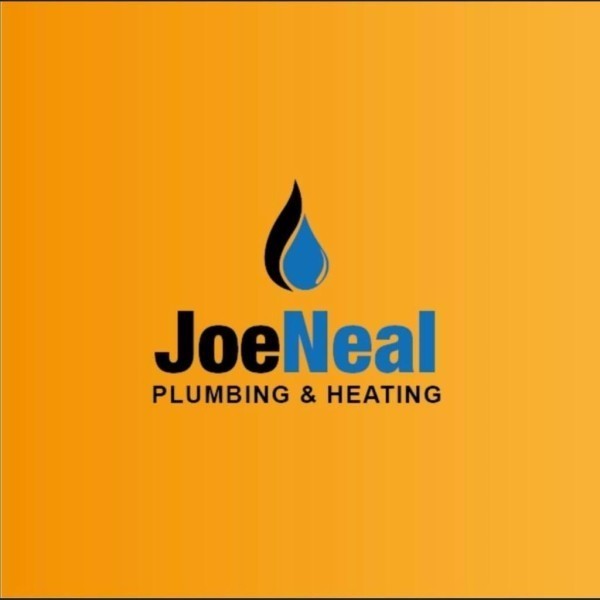Boiler/Heating Engineers in Gillingham
RF Property Maintenance & Building Ltd is a premier choice for all your building and maintenance needs in Perry... read more »
M Chapman Plumbing & Heating Ltd is your go-to service provider for all things plumbing and heating in Bulphan, Essex. O... read more »
Welcome to J M A Plumbing & Heating, your trusted partner for all plumbing and heating needs in Boughton Monchelsea and the surrounding K... read more »
Welcome to TM Mechanical, your premier choice for Boiler and Heating Engineers in Stonewood, proudly serving the entire Kent region. Nest... read more »
Welcome to We Service Boilers Ltd, your trusted partner for plumbing and heating solutions in Troy Town, Kent. As a premier provider of p... read more »
K-TEC Electrical London Ltd is your go-to solution for all your property maintenance needs in Hope's Greenread more »
Welcome to DDL Plumbing And Heating, your go-to experts for all plumbing and heating needs in Chatham and across the beautiful county of... read more »
J J Neal Services: Premier Boiler and Plumbing Experts in Chatham, Kent
Welcome to J J Neal Services, your go-to... read more »
First Rate Plumbing And Heating is a trusted name in the heart of Aylesford, offering top-notch plumbin... read more »
Welcome to Hogie Heating, your go-to experts for all plumbing, boiler, and bathroom fitting needs in South Ockendon and across Essex. Our... read more »
Welcome to Prestige Plumbing Kent, your premier choice for plumbing and heating services in the vibrant region of Kent. Conveniently loca... read more »
Welcome to M... read more »
Welcome t... read more »
Welcome to L... read more »
Welcome to Flint Property Maintenance, your go-to exp... read more »
Welcome to PRS Plumbing Services, your trusted Boiler... read more »
Welcome to PG Heating & Plumbing Ltd, your trusted lo... read more »
Domino Plumbing And Heating Ltd is y... read more »
Welcome to JC Plumbing, your trusted partner for all... read more »
Welcome to Stable Heating Ltd, your trusted partner f... read more »
Search Boiler/Heating Engineers in places nearby
- Boiler/Heating Engineers in Canterbury
- Boiler/Heating Engineers in Ashford
- Boiler/Heating Engineers in Broadstairs
- Boiler/Heating Engineers in Chatham
- Boiler/Heating Engineers in Deal
- Boiler/Heating Engineers in Dover
- Boiler/Heating Engineers in Faversham
- Boiler/Heating Engineers in Folkestone
- Boiler/Heating Engineers in Gravesend
- Boiler/Heating Engineers in Herne Bay
- Boiler/Heating Engineers in Hythe
- Boiler/Heating Engineers in Lydd
- Boiler/Heating Engineers in Maidstone
- Boiler/Heating Engineers in Margate
- Boiler/Heating Engineers in New Romney
- Boiler/Heating Engineers in Northfleet
- Boiler/Heating Engineers in Ramsgate
- Boiler/Heating Engineers in Rochester
- Boiler/Heating Engineers in Royal Tunbridge Wells
- Boiler/Heating Engineers in Sandwich
- Boiler/Heating Engineers in Sevenoaks
- Boiler/Heating Engineers in Sheerness
- Boiler/Heating Engineers in Sittingbourne
- Boiler/Heating Engineers in Swanley
- Boiler/Heating Engineers in Swanscombe
- Boiler/Heating Engineers in Tenterden
- Boiler/Heating Engineers in Tonbridge
- Boiler/Heating Engineers in Whitstable
Understanding the Role of Boiler/Heating Engineers in Gillingham
Boiler and heating engineers play a crucial role in ensuring the comfort and safety of homes and businesses in Gillingham. These professionals are responsible for installing, maintaining, and repairing heating systems, which are essential for providing warmth and hot water. Their expertise ensures that heating systems operate efficiently, reducing energy costs and minimising environmental impact.
The Importance of Boiler/Heating Engineers
Heating engineers are vital for maintaining the functionality of heating systems. Without their expertise, households and businesses could face significant disruptions, especially during the colder months. These engineers not only ensure that systems are running smoothly but also help in identifying potential issues before they become major problems.
Installation of Heating Systems
One of the primary responsibilities of boiler/heating engineers is the installation of heating systems. This involves selecting the appropriate system for a property, ensuring it meets the specific needs of the occupants. Engineers must consider factors such as the size of the property, the number of occupants, and energy efficiency when recommending a system.
Regular Maintenance and Servicing
Regular maintenance is essential for the longevity and efficiency of heating systems. Engineers perform routine checks to ensure that all components are functioning correctly. This includes inspecting boilers, radiators, and thermostats, as well as cleaning and replacing parts as necessary. Regular servicing helps prevent breakdowns and extends the life of the system.
Repair and Troubleshooting
When heating systems malfunction, boiler/heating engineers are called upon to diagnose and repair the issue. This requires a thorough understanding of the system's components and how they interact. Engineers use specialised tools and techniques to identify problems and implement effective solutions, ensuring minimal disruption to the occupants.
Qualifications and Skills Required for Boiler/Heating Engineers
Becoming a boiler/heating engineer requires a combination of formal education, practical experience, and specific skills. These professionals must be knowledgeable about various heating systems and possess the technical skills necessary to install, maintain, and repair them.
Educational Requirements
Most boiler/heating engineers begin their careers with a formal education in engineering or a related field. Many pursue vocational qualifications, such as NVQs or City & Guilds certifications, which provide the foundational knowledge and skills needed for the profession.
Apprenticeships and On-the-Job Training
Apprenticeships are a common pathway for aspiring heating engineers. These programmes combine classroom instruction with hands-on experience, allowing trainees to learn from experienced professionals. On-the-job training is crucial for developing the practical skills necessary for the role.
Technical Skills and Competencies
Boiler/heating engineers must possess a range of technical skills, including the ability to read and interpret technical drawings, understand complex systems, and use specialised tools. They must also be adept at problem-solving and troubleshooting, as these skills are essential for diagnosing and repairing issues.
Soft Skills and Customer Service
In addition to technical skills, heating engineers must have strong communication and customer service skills. They often work directly with clients, explaining complex issues in simple terms and providing advice on system maintenance and energy efficiency. Good interpersonal skills are essential for building trust and ensuring customer satisfaction.
Common Heating Systems in Gillingham
Gillingham, like many other towns in the UK, features a variety of heating systems. Understanding these systems is crucial for boiler/heating engineers, as it allows them to provide tailored solutions for each client.
Gas Boilers
Gas boilers are one of the most common heating systems in Gillingham. They are popular due to their efficiency and cost-effectiveness. Engineers must be familiar with the installation, maintenance, and repair of these systems, as they are a staple in many homes and businesses.
Combi Boilers
Combi boilers are a type of gas boiler that provides both heating and hot water on demand. They are compact and efficient, making them ideal for smaller properties. Engineers must understand the unique features of combi boilers to ensure they are installed and maintained correctly.
System Boilers
System boilers are another common type of heating system. They require a separate hot water cylinder but do not need a water tank. This makes them suitable for larger properties with higher hot water demands. Engineers must be skilled in working with these systems to ensure optimal performance.
Electric Heating Systems
Electric heating systems are an alternative to gas boilers, often used in areas where gas supply is limited. These systems are easy to install and maintain, but they can be more expensive to operate. Engineers must be knowledgeable about the different types of electric heating systems and their specific requirements.
Storage Heaters
Storage heaters are a type of electric heating system that stores heat during off-peak hours and releases it during the day. They are energy-efficient and cost-effective, but they require careful management to ensure optimal performance. Engineers must understand the intricacies of these systems to provide effective solutions.
Underfloor Heating
Underfloor heating is a popular choice for modern homes, providing even heat distribution and freeing up wall space. Engineers must be skilled in the installation and maintenance of these systems, as they require specialised knowledge and techniques.
Energy Efficiency and Environmental Considerations
With growing concerns about energy consumption and environmental impact, boiler/heating engineers in Gillingham must prioritise energy efficiency and sustainability. This involves selecting and installing systems that minimise energy use and reduce carbon emissions.
Energy-Efficient Heating Solutions
Engineers must be knowledgeable about the latest energy-efficient heating solutions, such as condensing boilers and renewable energy systems. These technologies offer significant energy savings and environmental benefits, making them an attractive option for many clients.
Condensing Boilers
Condensing boilers are designed to capture and reuse heat that would otherwise be lost through the flue. This makes them highly efficient, reducing energy consumption and lowering utility bills. Engineers must understand the unique features of these systems to ensure they are installed and maintained correctly.
Renewable Energy Systems
Renewable energy systems, such as solar thermal and heat pumps, are becoming increasingly popular in Gillingham. These systems harness natural energy sources to provide heating and hot water, reducing reliance on fossil fuels. Engineers must be skilled in the installation and maintenance of these systems to ensure optimal performance.
Environmental Impact and Sustainability
Boiler/heating engineers must consider the environmental impact of their work, striving to minimise carbon emissions and promote sustainability. This involves selecting energy-efficient systems, promoting regular maintenance, and advising clients on ways to reduce their energy consumption.
Carbon Footprint Reduction
Reducing carbon emissions is a key priority for heating engineers. By selecting energy-efficient systems and promoting regular maintenance, engineers can help clients reduce their carbon footprint and contribute to a more sustainable future.
Promoting Sustainable Practices
Engineers can also promote sustainable practices by advising clients on ways to reduce their energy consumption. This includes recommending energy-efficient appliances, improving insulation, and adopting smart home technologies. By encouraging sustainable practices, engineers can help clients save money and protect the environment.
Choosing the Right Boiler/Heating Engineer in Gillingham
Selecting the right boiler/heating engineer is crucial for ensuring the safety and efficiency of your heating system. There are several factors to consider when choosing an engineer, including their qualifications, experience, and reputation.
Checking Qualifications and Certifications
When selecting a heating engineer, it's important to verify their qualifications and certifications. This ensures that they have the necessary skills and knowledge to perform the job safely and effectively.
Gas Safe Register
For engineers working with gas boilers, being registered with the Gas Safe Register is essential. This certification indicates that the engineer is qualified to work safely with gas appliances, providing peace of mind for clients.
Industry Certifications
In addition to the Gas Safe Register, engineers may hold other industry certifications, such as those from the Chartered Institute of Plumbing and Heating Engineering (CIPHE) or the Heating and Hotwater Industry Council (HHIC). These certifications demonstrate a commitment to professional standards and ongoing education.
Evaluating Experience and Expertise
Experience is a key factor when choosing a heating engineer. Experienced engineers are more likely to have encountered a wide range of issues and can provide effective solutions quickly and efficiently.
Years in the Industry
Consider the number of years an engineer has been working in the industry. Those with extensive experience are more likely to have the skills and knowledge necessary to handle complex issues and provide high-quality service.
Specialisation and Expertise
Some engineers specialise in specific types of heating systems or technologies. If you have a particular system or require specialised services, look for an engineer with expertise in that area. This ensures that they have the necessary skills and knowledge to provide effective solutions.
Assessing Reputation and Reviews
A heating engineer's reputation is an important consideration when making your choice. Positive reviews and testimonials from previous clients can provide valuable insights into the quality of their work and customer service.
Online Reviews and Testimonials
Check online reviews and testimonials to gauge the engineer's reputation. Look for consistent positive feedback and any recurring issues that may be cause for concern. This information can help you make an informed decision.
Word of Mouth Recommendations
Personal recommendations from friends, family, or colleagues can also be valuable. These individuals can provide first-hand insights into their experiences with a particular engineer, helping you make a more informed choice.
Frequently Asked Questions
- What qualifications should a boiler/heating engineer have? A qualified engineer should be registered with the Gas Safe Register and may hold additional certifications from industry bodies like CIPHE or HHIC.
- How often should I service my boiler? It's recommended to service your boiler annually to ensure it operates efficiently and safely.
- What are the benefits of using a condensing boiler? Condensing boilers are highly efficient, capturing and reusing heat that would otherwise be lost, reducing energy consumption and utility bills.
- Can I install a heating system myself? Installing a heating system requires specialised knowledge and skills. It's best to hire a qualified engineer to ensure the installation is safe and effective.
- How can I improve the energy efficiency of my heating system? Regular maintenance, upgrading to energy-efficient systems, and improving insulation can all enhance the energy efficiency of your heating system.
- What should I do if my boiler breaks down? If your boiler breaks down, contact a qualified heating engineer to diagnose and repair the issue promptly.
















